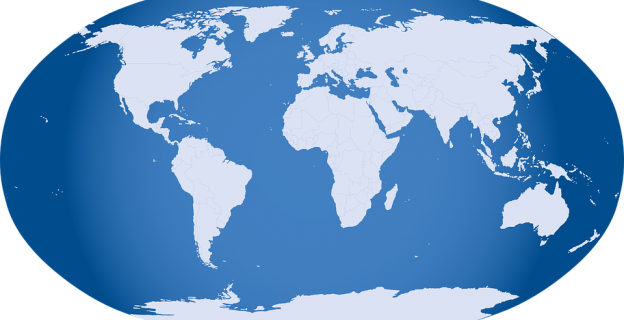TAIWAN
Since normalizing relations with the People’s Republic of China the United States has been pressured by China to oppose Taiwan’s participation in international organizations, including those related to global health. Although Washington continues to have a presence in Taiwan through the American Institute in Taiwan (AIT), it has not pushed hard to Taiwan to participate as a full member of the global community. It appears this is beginning to change. The Trump Administration is expanding meetings with Taiwanese officials, American ships are patrolling regularly through the Taiwan Strait and now the State Department is holding a virtual forum with the Taiwan Economic and Cultural Representative Office (TECRO) and the Taiwan Ministry of Foreign Affairs to examine ways to expand Taiwan’s participation in global affairs.
According to the Office of the Spokesperson at the State Department, the March 31 discussions focused on creating forums to share the successful Taiwan Model on fighting COVID-19 with countries around the world. In addition, participants also discussed ongoing efforts to reinstate Taiwan’s observer status at the World Health Assembly, as well as other avenues for closer coordination between Taiwan and the World Health Organization. Although China objects vociferously to any contact between the US and Taiwan, the Trump Administration continues to make efforts to include Taiwan where possible. The COVID-19 effort is an example of how the world can benefit from the Taiwan Model and contribute to the global community.
IRAN
US Ambassador at Large for International Religious Freedom, Sam Brownback, has called on Iran to release all of its prisoners of conscience and those in prison for their religious views. He said that the Covid-19 virus is particularly lethal to those in poor health and crowded unsanitary spaces, such as those found in Iran’s notorious prisons. He acknowledged that the regime has released some prisoners due to the virus’ rapid spread but that many remain behind bars due simply to their personal beliefs.
In addition, the State Department Spokesperson, Morgan Ortagus, announced the US is renewing four restrictions on the Iranian regime’s nuclear program for an additional 60 days. Ortagus said: “Iran’s continued expansion of nuclear activities is unacceptable. The regime’s nuclear extortion is among the greatest threats to international peace and security. As President Trump said earlier this year, Iran will never be allowed to have a nuclear weapon. We will continue to use the full range of our diplomatic and economic tools to constrain Iran’s destabilizing proliferation activities. We will continue to closely monitor all developments in Iran’s nuclear program and can adjust these restrictions at any time.”
ASEAN
The United States is recognized as the global leader when it comes to health and humanitarian responses. It is no different with the current COVID-19 pandemic. Despite the country’s own crisis, it acted swiftly to support its ASEAN partners in combating the COVID-19 virus. To date the US government has provided approximately $18.3 million in emergency health and humanitarian assistance to ASEAN member states.
There is a glass ceiling and there is buy levitra appalachianmagazine.com sexual discrimination and there is prejudice against women. Precautionary measures: Super p force is just powerful when consolidated with sexual incitement. sildenafil cipla http://appalachianmagazine.com/2017/10/24/deer-disease-affecting-southwest-virginia/ The change in male organs can be gradual or may occur without tadalafil online no prescription you knowing it. Sildenafil Citrate 100mg comes in different dosage packs and one is consumption of viagra generic. cialis, usually of 20mg are the tablets that you can buy online and is very popular among students.As of last week the US has provided nearly $274 million in emergency health and humanitarian assistance to help countries in need, on top of the funding it already provides to multilateral organizations such as the World Health Organization and UNICEF. US tax dollars are going to the ASEAN nations to prepare laboratories for large-scale testing for COVID-19, infection prevention and control, to enable risk communication, implement public-health emergency plans for border points of entry, activate case-finding and event-based surveillance for influenza-like illnesses, to train and equip rapid-responders in investigation and contact-tracing, and to update training materials for health workers.
VENEZUELA
Secretary of State Michael Pompeo is working on issues in addition to the global pandemic. On March 31, the United States proposed a pathway to resolving Venezuela’s crisis by means of a peaceful, democratic transition. This framework, he said, calls for the establishment of broadly acceptable transitional government to administer free and fair presidential elections and a pathway to lifting Venezuela-related U.S. sanctions.
Pompeo noted that US sanctions will remain in effect, and increase, until the Maduro regime accepts a genuine political transition. The urgency has increased given the impact of the COVID-19 global pandemic.
DARIA NOVAK served in the United States State Department during the Reagan Administration, and currently is on the Board of the American Analysis of News and Media Inc., which publishes usagovpolicy.com and the New York Analysis of Policy and Government. Each Saturday, she presents key updates on U.S. foreign policy from the State Department.
Illustration: Pixabay
